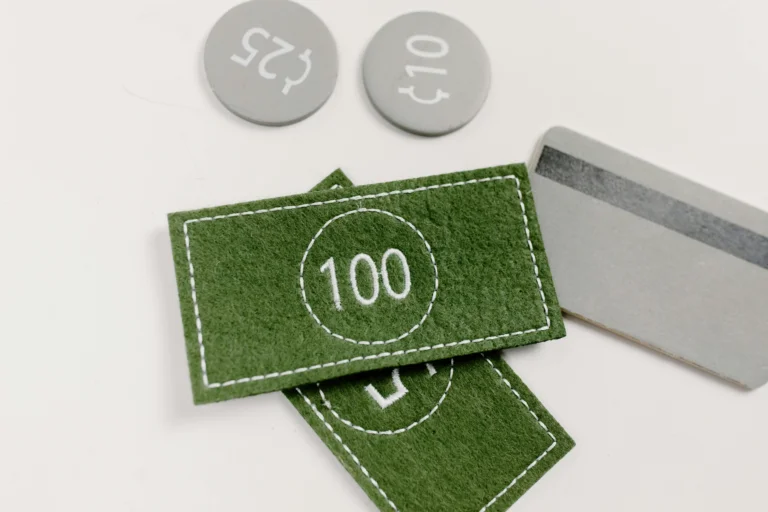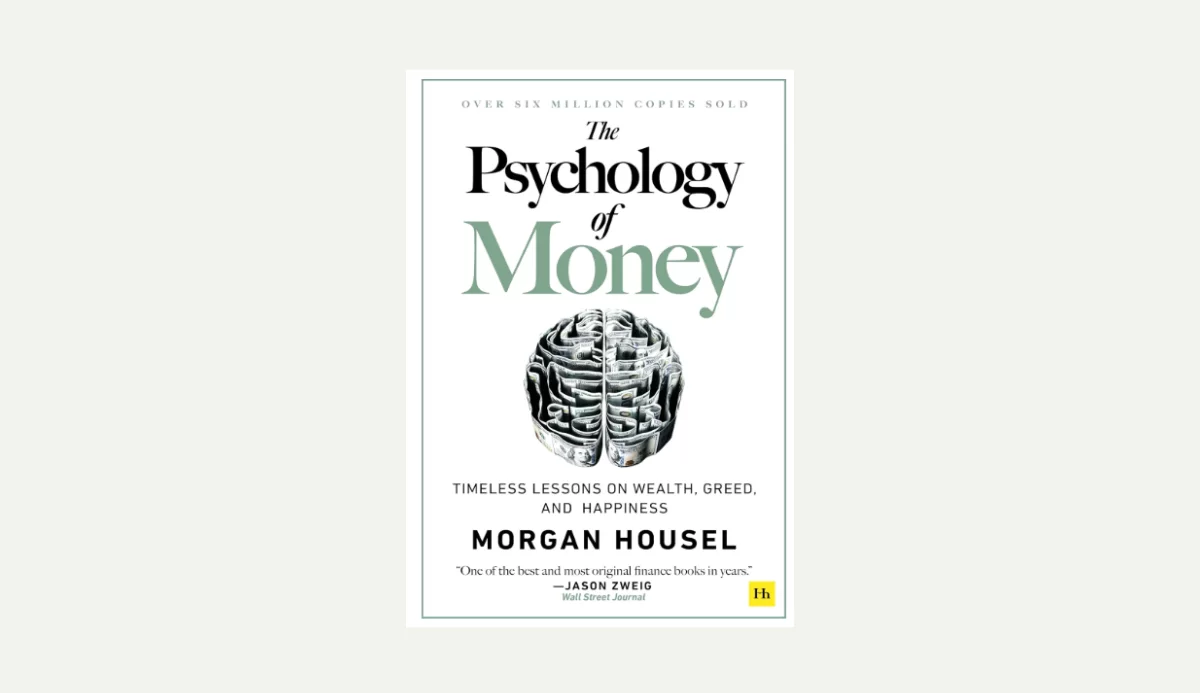
You’re sitting there wondering why your bank account never seems to grow, despite working harder than ever. I can tell you that the biggest barrier to financial independence isn’t your salary—it’s the mental blocks you’ve built around money without even realizing it. These 25 journal prompts will force you to confront the uncomfortable truths about your relationship with wealth, and I’ve never seen anyone work through them honestly without experiencing a complete shift in their financial reality.
What Does Financial Independence Mean to Me Personally?

Before you can manifest financial independence, you need to define exactly what it means for your unique situation, your dreams, and your non-negotiable lifestyle requirements. I can tell you that most people skip this vital step, and it costs them years of wasted effort.
Your definition isn’t about hitting some arbitrary number you saw online. It’s about knowing your exact monthly expenses, understanding what freedom looks like in your daily life, and identifying which luxuries you refuse to sacrifice. Maybe it’s traveling twice yearly, maybe it’s never checking price tags at the grocery store, or maybe it’s having $10,000 sitting in your account without touching it.
I’ve never seen anyone achieve lasting financial independence without first getting crystal clear on their personal definition of it. This clarity allows you to see money as a tool that aligns with your dreams rather than viewing it as something mysterious or off-limits, which is exactly how rich girl mindset thinking transforms your entire relationship with wealth.
What Childhood Memories Shaped My Current Relationship With Money?
Now that you know what financial independence looks like for you, it’s time to uncover the hidden programming that’s been running your money decisions since childhood. I can tell you from years of coaching high achievers, your earliest money memories hold the keys to breaking through your current limitations.
Think back to how your parents fought about money, the stress you felt when bills arrived, or the shame around wanting expensive things. Maybe you watched your mother count pennies, or your father work himself to exhaustion. These moments created neural pathways that still control your spending, saving, and earning patterns today.
I’ve never seen someone achieve true wealth without confronting these deep-rooted beliefs first. Your childhood programming either accelerates your success or sabotages it completely. Remember, doing well with money isn’t necessarily about what you know intellectually, but how your behavior patterns unconsciously respond to financial decisions and opportunities.
What Limiting Beliefs About Wealth Am I Ready to Release?
Every single belief you carry about wealthy people is either propelling you forward or holding you back, and I can guarantee most of yours are working against you. I can tell you from experience that beliefs like “rich people are greedy” or “money corrupts” will sabotage every financial opportunity that comes your way. Your subconscious won’t let you become something you despise.
I’ve never seen anyone achieve lasting wealth while harboring resentment toward the wealthy. If you believe money makes people evil, you’ll unconsciously reject it. If you think wealth requires sacrificing family time, you’ll create that exact scenario.
Start identifying these toxic beliefs now. Write them down, examine where they came from, then consciously choose empowering replacements. The billionaire mindset recognizes that cultivating an abundance mindset means focusing on value creation rather than operating from scarcity thinking that leads to zero-sum competition. Your financial future depends on this inner work.
How Do I Want to Feel When I Achieve Financial Freedom?
Most people focus so intensely on the dollar amounts they want to achieve that they completely skip over the emotional experience of financial freedom, and that’s a massive mistake. I can tell you from working with countless high achievers, the feeling is what drives everything else. You need to get crystal clear on how financial independence will feel in your body, your mind, your daily life.
Do you want the calm confidence that comes from never checking your bank balance with anxiety? The deep satisfaction of making decisions based purely on what excites you, not what pays the bills? Maybe it’s the electric thrill of having multiple income streams flowing while you sleep. Get specific about these emotions, write them down in vivid detail, because feelings magnetize money faster than numbers ever will. When you practice these money affirmations with genuine emotion and conviction, you’re creating stronger neural pathways that rewire your brain’s relationship with wealth.
What Would My Ideal Financially Independent Life Look Like in Vivid Detail?
While most people dream in vague generalities like “being rich” or “having enough money,” you need to paint a picture so detailed you could walk through it blindfolded. I can tell you that successful manifesters don’t just want financial independence—they know exactly what their Tuesday morning looks like when they achieve it.
I’ve never seen anyone achieve what they couldn’t first see clearly.
Write down every sensory detail: the texture of your morning coffee cup, the view from your home office window, the sound of your phone NOT buzzing with work stress. Describe your ideal day hour by hour. What time do you wake up? Where do you live? What does your kitchen smell like? How does it feel to check your bank balance? This detailed visualization process harnesses your brain’s Reticular Activating System to focus your attention on opportunities and pathways that align with your financial goals.
What Money Patterns Have I Inherited From My Family?
Before you can reprogram your financial future, you need to understand the money operating system that’s been running in the background of your mind since childhood. I can tell you that most people inherit their parents’ financial anxieties, spending habits, and limiting beliefs without even realizing it.
Your family’s money patterns become your default settings. Did your parents argue about money constantly? You might now avoid financial conversations entirely. Were they generous to a fault, always broke by month’s end? You could be repeating that cycle. Maybe they hoarded every penny out of fear, and now you can’t enjoy your success.
I’ve never seen someone achieve lasting financial independence without first identifying these inherited patterns and consciously choosing which ones serve their goals. The biggest barrier to financial success is often the invisible lens through which money is viewed – that scarcity thinking your family passed down that keeps you undercharging for your services or avoiding important salary negotiations.
How Can I Shift From Scarcity Thinking to Abundance Thinking Today?

Now that you’ve identified the money patterns holding you back, it’s time to rewire your brain for abundance. I can tell you from experience, this shift happens through deliberate daily practice, not wishful thinking.
Start by catching yourself mid-scarcity thought. When you think “I can’t afford that,” immediately reframe it to “How can I afford that?” This simple switch activates your problem-solving brain instead of shutting it down.
Replace “money is tight” with “money flows to me easily.” I’ve never seen someone maintain wealth while constantly declaring their lack. Your words program your subconscious, so choose them carefully.
Practice gratitude for money already received, even small amounts. Celebrate finding a quarter, getting a discount, receiving unexpected cash. This trains your brain to notice abundance everywhere, creating more opportunities for wealth.
The practice of transforming complaints about financial situations into appreciation statements rewires your brain to hunt for positive aspects in your money life, giving you power over your emotional state around finances.
What Financial Goals Excite Me Most and Why?
Why do some people achieve financial freedom while others stay stuck in the same money patterns year after year? The difference lies in their emotional connection to their goals.
I can tell you from experience, excitement is your strongest financial fuel. When you’re genuinely thrilled about building wealth, you’ll push through obstacles that stop others cold. Your goals need to spark something deep inside you, something that makes you willing to sacrifice Netflix binges for side hustles.
Maybe you’re excited about owning rental properties, starting that business you’ve dreamed about, or hitting your first $100K milestone. I’ve never seen anyone achieve lasting financial success without this emotional fire. Your excitement becomes the engine that powers consistent action, smart decisions, and the persistence needed to break through money barriers.
True wealth building requires rewiring your brain to ask “How can I afford it?” instead of automatically saying “I can’t afford it,” transforming your relationship with money as a tool rather than something to fear.
How Would My Financially Free Self Handle Today’s Money Decisions?
When you’re facing a money decision, your current self might grab that latte or buy those shoes without thinking twice. But here’s what I can tell you: your financially free future self operates completely differently.
That version of you asks powerful questions before every purchase. “Does this move me closer to my goals or further away?” They pause, breathe, and consider the compound effect of each decision.
I’ve never seen someone achieve real wealth who didn’t master this mental shift. Your future self doesn’t buy random stuff because they’re bored or stressed. They invest in assets, not liabilities. They choose experiences over things, quality over quantity. They create decision frameworks to evaluate potential returns and loss limits before making any financial move. Start channeling that energy today. Ask yourself: “What would my wealthy self do right now?”
What Fears About Money Are Holding Me Back From Taking Action?
Making smart money decisions is only half the battle, and here’s what most people don’t realize: fear is the silent killer of financial dreams. I can tell you from years of coaching that the same paralyzing thoughts replay in everyone’s head.
You’re terrified of losing what little you have, so you stuff cash under the mattress instead of investing. You avoid starting that business because “what if I fail?” You won’t negotiate your salary because rejection feels worse than being underpaid.
I’ve never seen anyone achieve financial independence while dancing around these fears. The brutal truth? Your comfort zone is actually the danger zone. Every day you let fear make your money decisions, you’re choosing poverty over prosperity. Face those fears head-on, or they’ll control your wallet forever.
The key is learning to transform fears into fuel that propels you toward bold financial action instead of keeping you paralyzed on the sidelines.
How Can I Celebrate Small Financial Wins Along My Journey?
Most people sabotage their financial progress by dismissing the small victories, and I can tell you this mindset will derail your journey faster than any market crash. You need to rewire your brain to recognize progress, no matter how minor it seems.
I’ve never seen someone achieve lasting financial independence without celebrating their $100 emergency fund milestone or their first debt payoff. These moments build unstoppable momentum.
Create a victory ritual that feels powerful to you. Ring a bell when you save your first $500, treat yourself to a nice dinner when you increase your income by $200 monthly, or buy something meaningful when you hit investment milestones. Your brain craves acknowledgment, and when you feed it recognition for financial wins, it’ll automatically seek more success.
What Does My Relationship With Spending Reveal About My Values?
Your spending habits serve as a mirror that reflects your deepest beliefs about money, success, and what truly matters in your life. I can tell you that examining where your money goes reveals everything about your priorities, fears, and aspirations.
When you analyze your spending patterns, you’ll uncover powerful truths:
- Impulse purchases often mask deeper emotional needs or insecurities
- Status-driven spending reveals your desire for external validation
- Investment in experiences vs. things shows your values about lasting fulfillment
- Generosity patterns demonstrate your abundance mindset or scarcity fears
I’ve never seen someone achieve true financial independence without first understanding their spending psychology. Your money flows where your values live, so if you’re not investing in your future, you’re telling yourself it doesn’t matter.
How Can I Align My Daily Habits With My Wealth-Building Goals?
Building wealth isn’t about one big decision—it’s about the small choices you make every single day that either move you closer to or further from financial independence. I can tell you from experience, your daily habits either compound into wealth or drain your future power.
Start tracking every expense for one week—I’ve never seen someone do this without having at least three “holy crap” moments about where their money actually goes. Then audit your time like a CEO audits a failing department. Are you scrolling social media for two hours or learning skills that increase your earning potential?
Replace one expensive convenience habit with a wealth-building action. Skip the daily coffee shop run, invest that $150 monthly instead.
What Would I Do if Money Were No Object?
Why does this question make so many people freeze up like deer in headlights? Because they’ve never given themselves permission to dream without limitations. I can tell you from experience, this exercise reveals your deepest desires and true priorities.
When you remove financial constraints from the equation, you’ll discover what genuinely drives you. Maybe it’s traveling the world, starting a foundation, or creating art without worrying about sales. These aren’t frivolous fantasies—they’re your authentic goals.
Here’s how to approach this exercise:
- Write continuously for 10 minutes without editing yourself
- Include both big dreams and small pleasures you’d pursue
- Note which activities energize you most as you write
- Identify patterns in your responses that reveal core values
This clarity becomes your North Star for building wealth with purpose.
How Do I Talk to Myself About Money and How Can I Improve This?
Once you understand what truly matters to you, the next step involves examining the voice inside your head that narrates every financial decision you make. I can tell you that most people sabotage themselves with toxic money talk, and they don’t even realize it.
You might catch yourself saying, “I can’t afford that,” or “Rich people are greedy.” This internal dialogue shapes your reality more than market conditions ever will.
I’ve never seen someone achieve financial independence while constantly telling themselves they’re broke or unworthy. Your subconscious believes every word you feed it. Start replacing “I can’t afford it” with “How can I afford it?” Transform “Money is tight” into “I’m finding new opportunities.” Write down your current money statements, then rewrite each one from a position of power and possibility.
What Financial Opportunities Am I Not Seeing Right Now?
Where exactly are you looking for money-making opportunities, because I can guarantee you’re walking past dozens of them every single day without noticing.
Your brain’s pattern recognition system gets lazy when you’re focused on survival instead of growth. I can tell you from experience, the moment you shift into opportunity-seeking mode, money possibilities appear everywhere.
Here’s what you’re probably missing:
- Skills you take for granted – That thing you do naturally? Others will pay for it
- Problems people complain about – Every complaint is a business idea waiting
- Inefficiencies in your daily routine – Someone needs these solved
- Networks you haven’t monetized – Your connections have wallets
Start documenting three potential opportunities daily. I’ve never seen someone do this consistently without finding their breakthrough within thirty days.
How Can I Cultivate Gratitude for My Current Financial Situation?
/ima
Most people treat gratitude like a consolation prize when they’re broke, but that’s exactly backwards thinking that keeps them stuck in financial mediocrity. I can tell you from experience, gratitude is your most powerful wealth-building tool because it rewires your brain to see abundance everywhere.
Start by acknowledging what’s already working. You’ve got shelter, internet access, the ability to read this. That’s more infrastructure than most humans throughout history possessed. I’ve never seen someone build lasting wealth while constantly complaining about their starting point.
Write down three financial wins from this week, even small ones. Paid a bill on time? Found a dollar? Avoided an unnecessary purchase? These victories compound when you acknowledge them, creating momentum that attracts bigger opportunities.
What Skills Could I Develop to Increase My Earning Potential?
Why do people spend decades hoping for raises when they could develop skills that make them irreplaceable in six months? I can tell you from experience, waiting for someone else to recognize your worth is financial suicide. You’ve got the power to transform your earning potential, but it requires strategic skill development.
Focus on these high-impact areas:
- Digital marketing and analytics – Companies desperately need people who understand data-driven growth
- Public speaking and presentation skills – Leaders who communicate effectively get promoted faster
- Project management and process optimization – Organizations pay top dollar for efficiency experts
- Financial analysis and budgeting – Money managers hold serious influence
I’ve never seen someone master these skills and remain financially stagnant. Pick one, commit six months, and watch opportunities multiply.
How Do Wealthy People Think Differently Than I Currently Do?
Every wealthy person I’ve met operates from a completely different mental framework than the average person, and it’s not about being smarter or having better luck. They think in the context of systems, not transactions. While you might think “I need more money,” they think “I need better systems that generate money.”
I’ve never seen a wealthy person worry about spending $20 on coffee, but I’ve watched them analyze every business decision for weeks. They view money as a tool, not a goal. Most people think scarcity – “There’s not enough for everyone.” Wealthy people think abundance – “How can I create more value?”
They also think long-term, making decisions today that pay off in five years, not five minutes.
What Would Financial Security Give Me Beyond Money Itself?
Understanding how wealthy people think is just the first step, because the real power comes from understanding what financial security actually gives you beyond the numbers in your account.
I can tell you that money isn’t really about money at all. It’s about freedom, choices, and peace of mind. When you’re financially secure, you’re not just buying things—you’re buying something far more valuable.
Here’s what financial security truly provides:
- Time ownership – You control your schedule, not your boss
- Decision freedom – You choose based on values, not desperation
- Mental peace – You sleep without money anxiety consuming your thoughts
- Relationship power – You give from abundance, not need
I’ve never seen anyone regret having financial security, but I’ve watched countless people suffer without it.
How Can I Become a Better Steward of the Money I Have Now?
The gap between wanting financial independence and actually achieving it often comes down to one critical skill: how well you manage what you already have. I can tell you from experience, people who complain about never having enough money usually can’t track where their current dollars go. You can’t build wealth on a foundation of financial chaos.
Start by becoming ruthlessly aware of every dollar’s purpose. Track your spending for thirty days, categorize everything, and identify where money disappears without adding value to your life. I’ve never seen someone achieve real financial power who didn’t first master their cash flow. Create systems that automate your savings, eliminate mindless spending, and make every purchase intentional. Your current money habits predict your future wealth.
What Financial Legacy Do I Want to Create for Future Generations?

When you shift your focus from accumulating wealth for yourself to building something that outlasts your lifetime, everything about money changes. You start making decisions through a different lens, one that considers impact across decades, not just years.
I can tell you that the most powerful people I know aren’t just building wealth—they’re architecting systems. They understand that true financial independence means creating something bigger than themselves.
Here’s what legacy-builders focus on:
- Educational foundations that teach financial literacy to their children
- Business structures that generate income for multiple generations
- Investment portfolios designed for long-term compound growth
- Philanthropic vehicles that create lasting community impact
Your legacy isn’t just about leaving money behind. It’s about transferring knowledge, values, and systems that empower future generations to build upon what you’ve created.
How Can I Transform My Relationship With Risk When It Comes to Money?
Building generational wealth requires you to face one uncomfortable truth: your current relationship with risk is probably holding you back. I can tell you that most people treat risk like poison, avoiding every investment opportunity that isn’t guaranteed. That’s backwards thinking.
Smart money knows risk isn’t your enemy – it’s your tool. I’ve never seen anyone build real wealth by hiding money under mattresses or keeping everything in savings accounts. You need to shift from asking “What if I lose money?” to “What if I don’t take this opportunity?”
Start viewing calculated risks as stepping stones, not landmines. Research thoroughly, diversify wisely, but don’t let fear paralyze you. Your financial independence depends on embracing intelligent risk-taking.
What Steps Can I Take Today to Move Closer to Financial Independence?
Since you’ve already shifted your mindset about risk, it’s time to turn that new perspective into concrete action. I can tell you from experience, financial independence isn’t built through wishful thinking—it’s constructed through deliberate, daily choices that compound over time.
Start implementing these four power moves immediately:
- Track every dollar flowing in and out of your accounts this week
- Automate 20% of your income into high-yield savings or investment accounts
- Eliminate one recurring expense that doesn’t directly contribute to your goals
- Research three income-generating opportunities you can start within 30 days
I’ve never seen anyone achieve true financial freedom without taking control of their money flow first. These aren’t suggestions—they’re your marching orders for building the wealth that creates real power in your life.
How Will I Know When I’ve Truly Achieved Financial Freedom?
Taking action builds momentum, but recognizing when you’ve crossed the finish line requires a completely different skill set.
I can tell you that true financial freedom isn’t just about hitting a number in your bank account. It’s when you wake up knowing your money works harder than you do, when investment returns cover your lifestyle without touching principal, when you make decisions based on desire rather than necessity.
I’ve never seen someone achieve real freedom who couldn’t answer this: “If I stopped working tomorrow, how long would my money last?” True freedom means the answer is forever. Your passive income exceeds expenses, you’ve eliminated debt completely, and market volatility doesn’t trigger panic. You’re not wealthy on paper, you’re powerful in practice.
Conclusion
You’ve got the roadmap now, and I can tell you from experience that these journal prompts will shift your money mindset faster than you think. Don’t just read through them—actually write your answers down. Your financial independence isn’t going to manifest itself while you’re sitting on the sidelines. Start with one prompt today, commit to the process, and watch how quickly your relationship with wealth transforms. You’re closer than you realize.





Leave a Reply